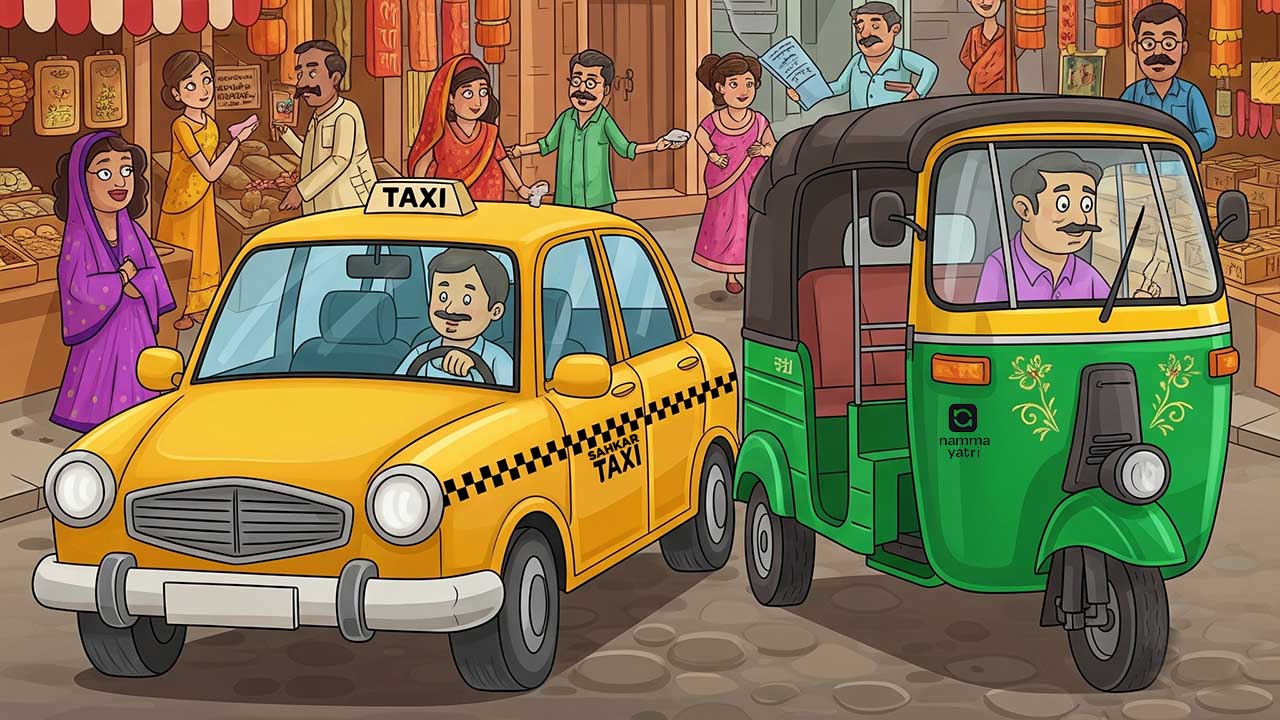Why is Govt Launching Sahkar Taxi When Namma Yatri Already Exists?
When India announced Sahkar, its first fully driver-owned taxi platform, I sensed change in the air. You might have heard Amit Shah present this zero-commission app in Parliament. Sahkar’s pitch is simple and powerful: Drivers keep every rupee they earn. Riders pay fair rates. The platform takes no cut.
On the surface, this promise seems strong and familiar. That’s because Namma Yatri has already perfected this model, and it’s thriving. The open-source app, built on the Beckn protocol, has facilitated over 100 million rides and earned six lakh drivers more than ₹600 crore all without commissions. Namma Yatri won real loyalty by prioritizing drivers and riders. I still remember my last ride with them: the driver proudly told me how he kept his full earnings, with no middlemen taking a share.
So why launch Sahkar Taxi when Namma Yatri exists? The answer lies in backing. Namma Yatri is a private initiative, while Sahkar enjoys full government support think Amul, but for taxis and autos. The Ministry of Cooperation will help scale Sahkar Taxi nationwide, a significant move.
Yet, many question why the government is reinventing a proven model. Critics argue this could be a top-down project that complicates what Namma Yatri already solves. This debate matters because transport in India is deeply political nowhere more so than in Goa.
Even in 2025, tourists in Goa can’t book an Ola or Uber. Around 1.5 lakh local taxi operators form a powerful lobby that blocks all app-based services. They pressure state leaders, and governments hesitate to enforce aggregator guidelines. The result? Chaos for visitors: unpredictable fares, long waits, and no competition to keep drivers accountable. Even the state-backed Goa Miles app failed to break the status quo due to union resistance.
This shows what happens when politics trumps public interest. When mobility becomes a bargaining chip, everyone loses. That’s why cooperative models like Namma Yatri and Sahkar stand out: they don’t just rely on tech they restore trust between drivers and riders.
The stakes are even clearer in Karnataka. Recently, over 5,000 bike-taxi riders marched to Bengaluru’s Vidhana Soudha. They weren’t protesting for chaos they demanded the state reverse a blanket ban and create fair policies instead. Many depend on these apps to survive. Some told me they could barely afford groceries; a few students even skipped meals after losing their income.
This fight is emotional because it’s not just about companies or commissions it’s about livelihoods. Drivers want fair rules. Riders want transparent pricing. That’s exactly what cooperative apps promise.
The bigger question is: Can India create a true “UPI moment” for mobility? Can a driver-first, cooperative model outcompete Big Tech by offering a better product not just more policies? That’s the future I want to see. Last week, a Namma Yatri driver in Bengaluru told me, “I can finally plan my savings and my children’s school fees.”
That kind of human impact can’t be ignored. India’s cab wars are far from over, and what happens next will shape how we all get around. One thing is certain: Trust will matter more than ever.

